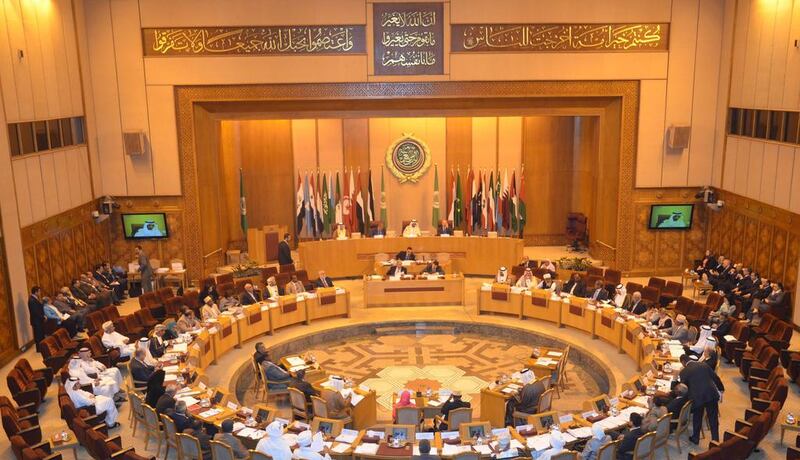The Arab Parliament gave a co-ordinated, region-wide response on Thursday to Washington’s decision to recognise Jerusalem as Israel's capital, by moving to block Israel’s 2019-2020 candidacy for a seat on the United Nations Security Council.
Israel is the only country in the Middle East that has never obtained a non-permanent Security Council seat.
As a member of one of the UN's four unofficial regional groups, the Western Europe and Others Group bloc, Israel’s candidacy was considered non-viable even before President Trump’s Jerusalem announcement.
_________________
Read more:
Israel: No peace talks with Palestinian government reliant on Hamas
Kuwait speaker calls Knesset members 'occupiers and murderers of children'
The world has spoken and Trump doesn't like it
_________________
Still, Thursday’s vote in Cairo by the pan-Arab body, which was created in 2004 to voice popular sentiment, is the latest expression of regional outrage over Mr Trump’s controversial recognition of Jerusalem as Israel’s capital.
“Moving the US embassy to Jerusalem violates international law and serves the cause of making Jerusalem the acknowledged capital of Israe. Its candidacy for a UN Security Council seat must be rejected,” said Usama El-Kawasmy, spokesman for the Palestinian Liberation Movement in Ramallah.
The Arab Parliament also endorsed Ramallah’s efforts to grant full membership for Palestine at the UN and pledged to work with more than 500 international organisations and conventions to strengthen recognition of the Palestinian state.
Thursday's resolution also directed its speaker, Mishaal bin Fahmy El Selmy, to “contact the UN chief and the high commissioner for human rights urging them to immediately intervene to stop Israel's settlement-building and flagrant violations against the Palestinian people.”
On Wednesday, the Israeli cabinet approved the transfer of $11 million (Dh40.4million) in funding for settlements in the West Bank. That decision came a day after a group of religious Zionist rabbis met with Prime Minister Benjamin Netanyahu and asked him advance Israel’s settlement project in the occupied territories.
Supporters of the Israeli government downplay the severity and impact of the Arab response to President Trump’s Jerusalem announcement.
“All told, the few thousand Muslims who protested Trump’s declaration worldwide were an infinitesimal fraction of a religious community that numbers more than one billion,” said Hillel Frisch, an analyst at the Begin Sadat Center for Strategic Studies at Bar Ilan University near Tel Aviv. “The largest and most persistent demonstrations took place in Jakarta, the capital of Indonesia.”
Azzam Al Ahmad, head of Fatah's Central Committee said Thursday’s resolution was just the start of a unified Arab campaign to respond to the American move to change the status of Jerusalem.
“The American decision will increase the political isolation of the US,” said Mr Al Ahmed. “The Arab stance is being transformed into a realistic policy to support Jerusalem.”
Thirty-seven members of the parliament also tabled a resolution slamming Iran's interference in the sovereign affairs of Arab nations.





